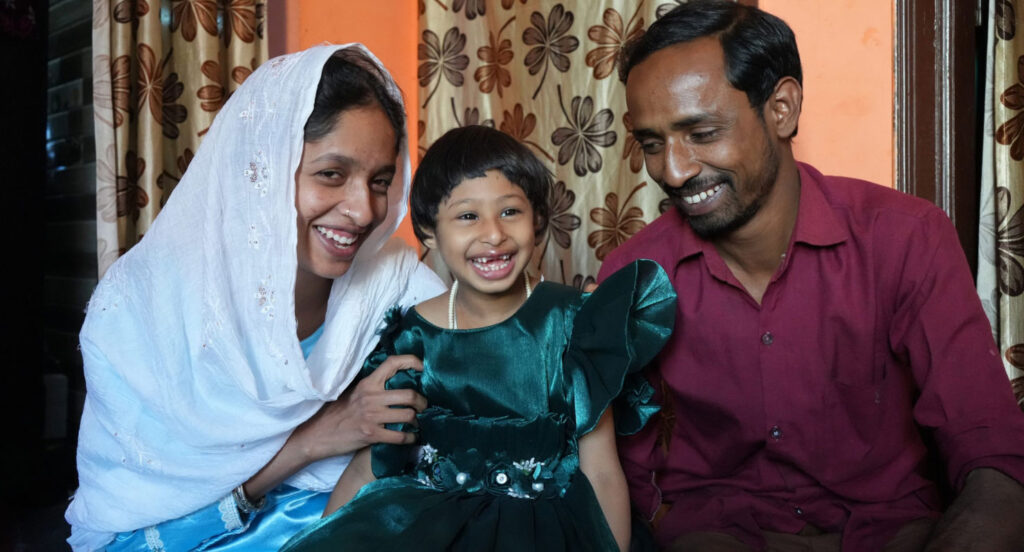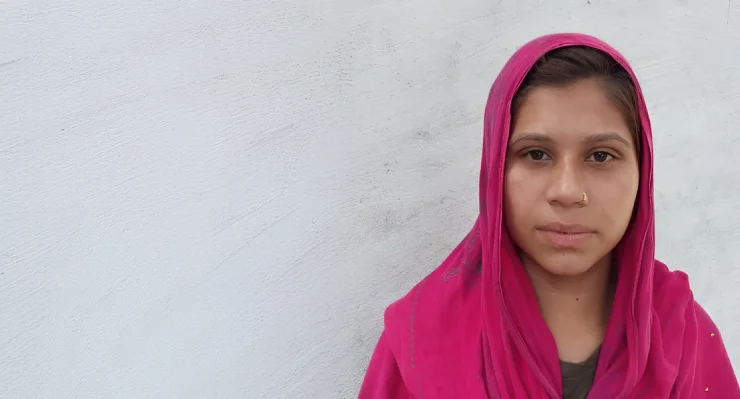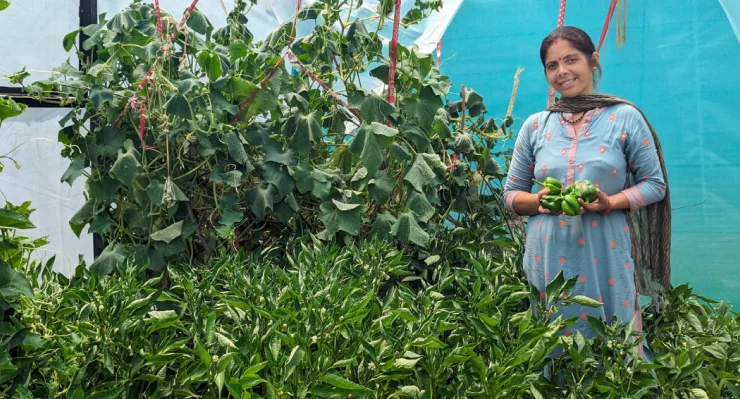Visual impairment is a serious health challenge that is acute in India. In majority of the cases, the primary reasons for blindness are refractive error and cataract that are both avoidable with treatment. Cataract can be treated with a small surgery, and refractive error can be corrected by prescription glasses. Other eye ailments such as diabetic retinopathy and glaucoma can also be carefully managed or slowed down if detected early. Timely intervention, basic infrastructure, and awareness can help prevent vision loss.
In urban settings, the rates of visual impairment have considerably reduced since the introduction of VISION 2020 initiative in India. However, in rural areas, blindness is a major factor that affects the socioeconomic standing of families: they lose out on livelihood, education, and integration into society. Accessible eye care is still a distant dream in rural parts of the country, especially among tribal and scheduled caste communities.
CBM India’s work centers mostly on providing comprehensive and inclusive eye care in remote areas of the country. By integrating eye care services into India’s pre-existing health systems, CBM alleviates the problem of preventable blindness. Not only does CBM’s eye care programmes address eye care comprehensively, they also ensure rehabilitation of persons with disability. The project Sarvabhaumik Nainika aims at reducing avoidable blindness by delivering inclusive, accessible, and affordable primary eye care services through health education, screening for eye ailments, and medical interventions in Jawadhu Hill Block, Kuppam, and neighbouring blocks of Vellore district, Tamil Nadu. The programme is run in collaboration with CMC Hospital, Vellore and supported by Tata Capital Limited.
Since the area is a reserve forest, transport in these parts is limited. Due to poor road connectivity, people have to walk several kilometres through the jungle before they can find a motorable road, and then wait for a passing vehicle to take them to the nearest bus stop to board a bus to the Primary Health Centre. All other facilities such as employment opportunities, schools, and health care are limited. There are two PHCs in this range; however they do not offer eye care services. There are no other permanent eye care facilities available at Jawadhu either. The people of the hills are subsistence farmers and, till recently, sold forest produce for a living. Now, there is a trend of mass migration for several months in a year, where tribal people go as hired contract labourers to neighbouring states.
In Jawadhu, there are 11 panchayats and about 175 hamlets; each hamlet is a cluster of 20 to 40 houses. Most hamlets are accessible only by dirt tracts, some by mud roads, which can be negotiated by tractors or two wheelers, and the remaining by tarred roads. The hilly terrain makes access to health care and other facilities difficult, and medical teams and patients often have to trek several hours to meet each other.
The story of Mr. Vinayagam accurately captures the adversity of these farmers in these villages. Vinayagam from Vellore fell from a coconut tree in 2009. This tragic event rendered him paraplegic, which can be one of life’s most harrowing experiences. Since then, he has been dependent on a wheelchair for mobility. He worked as a coolie through the Mahatma Gandhi National Rural Employment Guarantee Scheme to sustain his family. Over the last year and a half, he gradually lost his vision — his right eye becoming worse in the last six months, making him unable to go to work. His wife, who had to support their two school-going children on Vinayagam’s disability pension, took up a coolie’s job in his place to earn a living.
CMC’s Kuppam secondary clinic referred Mr. Vinayagam to Vellore eye hospital for cataract surgery, which was performed free of charge. With his vision restored, he can now consider better employment opportunities. The Ophthalmology team admitted him to the vocational rehabilitation unit at Kuppam to identify skill-appropriate opportunities. CBM was able to provide comprehensive aid to Vinayagam with the support and partnership of Tata Capital Limited.
The Sarvabhaumik Nainika project offers screening for those with cataracts, diabetes, refractive vision, glaucoma, and other eye ailments. Mrs. Rukku is one such person who managed to receive timely treatment. Rukku owns a small tin-roofed house with two rooms and lives with her husband and daughter in a small village in Jawadhu hills. They are farm labourers, and Rukku leaves for farming early in the morning daily. One day she came down with high fever that continued for ten days with severe pain in her eyes along with vision impairments. Her daughter, a social worker, referred her to CMC’s CHAD (Community Health and Development Unit), and they referred her immediately to CMC Vellore’s causality. She was diagnosed with subluxated lens (dislocation of the lens) and Retinitis pigmentosa (damaged retina) in both eyes. Her surgery, which was scheduled immediately, helped restore her vision.
With Tata Capital’s support, the project reached out to rural and tribal pockets of Tamil Nadu and built three optical units to provide subsidised spectacles to the poor. Local youths were also trained to practice optometry under the project, ensuring sustainable eye care services at the primary level. The project benefits 50 villages in Kuppam and Jawad, covering 1.8 lakh people. The project conducts primary screening of approximately 20000 people and support surgeries of approximately 2200 people.



